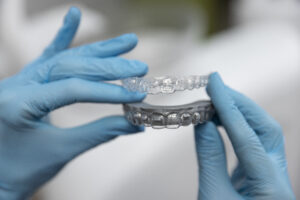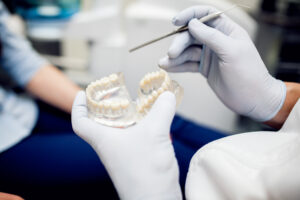Let’s start simple: cavities are frustrating, and most of us will deal with them at some point. At Clove Dental, we spend a lot of time talking about prevention because it’s always easier, and less painful than fixing decay later. One tool we’ve relied on for years is the tooth sealant. These thin coatings protect the grooves of your molars where brushing sometimes misses.
Traditional sealants are plastic-based and do their job, but like any coating, they wear out and need replacing. Lately, researchers have been looking at something very different: keratin. Yes, the same protein in your hair, nails, and skin. Early studies show that keratin might be used to make a natural tooth sealant that bonds more like enamel, lasts longer, and is kinder to the environment. For families in Ventura, this could mean a fresh direction in dental care.
Why Keratin?
Keratin is surprisingly tough. It’s what gives strength to your nails and helps your hair resist damage. When scientists process keratin from natural sources like wool or even hair waste, it can be turned into a material that interacts well with teeth. Instead of forming a plastic “cap,” keratin can actually attach itself more closely to the enamel.
That means the coating doesn’t just sit there; it works with the tooth. In lab settings, keratin layers have been shown to resist acid, reinforce weak spots, and even support tiny enamel repairs. Imagine putting on a raincoat that doesn’t just keep you dry but also patches small holes in your clothes while you wear it. That’s the idea here.
The Tooth Sealants We Use Now
In our office, tooth sealants are most common for children and teens. Their back teeth, the molars, are tricky to clean, and sealants cover those deep grooves where bacteria hide. A traditional sealant is made from resin, a plastic material that we paint onto the tooth before curing it with a special light.
It’s simple, fast, and effective. But there are a few downsides:
- Sealants don’t last forever; most need to be replaced every few years.
- They can chip if a patient chews ice or grinds teeth at night.
- And since they’re plastic, they’re not exactly eco-friendly.
Keratin-based sealants are being explored as a way to solve these issues.
Why It Matters
Every cavity prevented is a win. Not only does it save a tooth from drilling and filling, but it also saves patients from added costs and discomfort later. Sealants already make prevention easier, but a version that can strengthen enamel at the same time is a big deal.
Think about kids: brushing habits aren’t always perfect, and sugar sneaks into snacks and drinks. A keratin-coated tooth sealant could give them extra protection during those years when they need it most. Adults could benefit too, especially anyone who wants stronger enamel without extra dental work. And for people who care about greener choices, it feels good knowing science is moving away from plastics.
How We Look at New Treatments
Patients often ask how quickly new discoveries make it into everyday care. At Clove Dental, we take a careful approach. We only bring in treatments once we’re confident they’re safe and proven. When that happens, we make sure to explain things in plain language and walk patients through the benefits.
Keratin-coated tooth sealants aren’t in regular use yet, but the research looks promising. If they clear testing and approval, our goal is to be ready to offer them here in Ventura.
A Side-by-Side View
- Traditional Sealant: Plastic, blocks food and bacteria, usually lasts a few years.
- Keratin-Coated Sealant: Natural protein, bonds more like enamel, may last longer, and could even help repair weak enamel.
That extra step, from just protecting teeth to actually strengthening them, is what makes keratin so exciting.
What Could Come Next
Keratin isn’t just being tested for sealants. Some studies are exploring keratin-based gels or even toothpaste that could help repair enamel at home. That may sound futuristic, but not too long ago fluoride toothpaste was also considered groundbreaking. The point is, the future of prevention looks promising.
For now, though, regular check-ups, fluoride treatments, and the standard tooth sealant remain the trusted way to keep cavities away. But knowing that something more natural may soon be available gives us hope for a healthier and more sustainable future in dentistry.
Wrapping It Up
Tooth sealants have already made a huge difference in preventing cavities, especially for children. Tooth sealants with keratin can help keep teeth safe and make less trash. At Clove Dental, we want to help teeth stay healthy before there are any problems. If keratin, a natural protein, can make this even better, we want to check it out. Taking care of teeth is about making sure they stay healthy for a long time.





